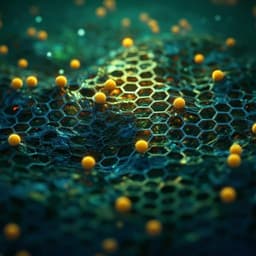
Space Sciences
Emergent ribozyme behaviors in oxychlorine brines indicate a unique niche for molecular evolution on Mars
T. G. Hoog, M. R. Pawlak, et al.
This captivating study reveals how perchlorate brines on Mars could provide the perfect environment for RNA folding and catalysis, potentially supporting life in extreme conditions. Conducted by Tanner G. Hoog, Matthew R. Pawlak, Nathaniel J. Gauth, Gloria C. Baxter, Thomas A. Bethel, Katarzyna P. Adamala, and Aaron E. Engelhart, it emphasizes the unique suitability of nucleic acids to Martian environments, hinting at the possibilities of biomolecular evolution.
Related Publications
Explore these studies to deepen your understanding of the subject.







